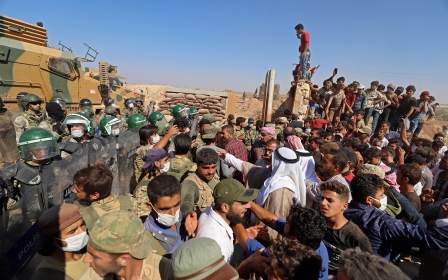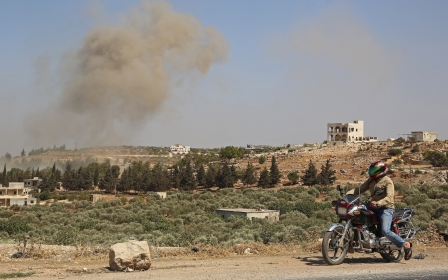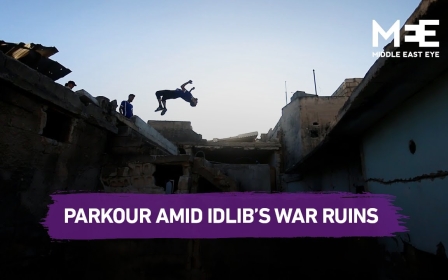In pictures: How a displaced Syrian is generating electricity from the soil
Mohsen al-Amin is a 50-year-old displaced Syrian from the town of Qalaat al-Madiq in the northern Hama countryside.
He is currently living in a camp near the Syrian-Turkish border.
The father of two young children, Amin was displaced from his town in 2019 following the start of a military campaign by the Syrian government and its Russian allies (MEE/Ghaith Alsayed)
Amin chose to stay and live in the camp despite all the difficulties and troubles facing displaced people.
He told Middle East Eye that he preferred to stay in Syria rather than leave the country.
At the beginning of Syria's civil war, Amin was a student at the law faculty of the University of Aleppo.
However, after the the start of the uprising, in which he took part, he was unable to continue his studies due to his fear of being arrested by Syrian government forces at checkpoints (MEE/Ghaith Alsayed)
Having once done agricultural work, Amin is now unemployed and he and his fellow residents at the camp rely on humanitarian aid for their survival.
The electricity provided to them in the camp through a solar panel and a battery is not enough, he says.
As a result, Amin looked up ideas online about how to generate low-cost electricity. He carried out a number of experiments using soil, vinegar and other materials.
His son, Hassan, helps him with the experiments, in which he has so far been able to produce small quantities of electricity of between 10 and 17 volts (MEE/Ghaith Alsayed)
The community in the northern countryside of Hama suffered greatly when their lands were overrun by Syrian President Bashar al-Assad's forces.
They had put all their money into agriculture, with crops either burnt or farmland occupied by Assad's forces, Amin tells MEE.
“The people in those areas were dependent on agriculture, which was the backbone of the economy in the north,” he said.
“After their displacement and loss of land, job opportunities became very few.”
Amin hopes that eventually his experiments will bring “a safe source of energy” to help other people in the camps who have lost their way of life (MEE/Ghaith Alsayed)
Middle East Eye propose une couverture et une analyse indépendantes et incomparables du Moyen-Orient, de l’Afrique du Nord et d’autres régions du monde. Pour en savoir plus sur la reprise de ce contenu et les frais qui s’appliquent, veuillez remplir ce formulaire [en anglais]. Pour en savoir plus sur MEE, cliquez ici [en anglais].




